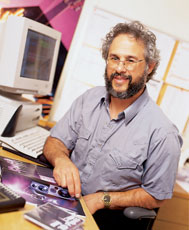|
|
What's in a Name? |
September 1999 |
|
What's in a Name? If there is a heaven, surely it holds a place for the authors of freeware and shareware. It's encouraging that in our often self-centered and jaded society, some programmers trust users to pay tomorrow for software that they can use today-and others even give away their wares. I promptly pay the fee for any shareware I use. Conversely, if I check out a program and decide not to use it, I don't pay for it. That's the beauty of shareware.
However, according to one well-informed developer, the Association of Shareware Professionals changed its definition of shareware several years ago to include programs that, for instance, have certain key features (including file saving) disabled. I think that this misses the point of shareware, and that the new definition unnecessarily blurs the line between shareware and commercial demos. What's in a name? For EM's purposes, a program must meet all of the following criteria to qualify as shareware:
1. Payment is expected, but enforcement is strictly on the honor system.
2. The program is usable as is, with all the essential features that are required to make practical use of the program fully operational. You might get a code that unlocks additional features when you pay your shareware fee, but if fundamental features (such as the ability to save a file) are crippled in the unregistered program, or certain features work only part of the time, it is not shareware; it is a demo.
3. You can use shareware indefinitely without paying, though you might get reminder messages every time you launch the software. If software "times out" (that is, expires after some period of time) and is thereafter unusable until you pay for it, it is not shareware; it is a demo.
4. Shareware is not physically copy protected. However, if you copy a registered version, you may have to reenter a code to authorize the copy.
Shareware authors may, of course, offer incentives to register, such as supplying free documentation, giving you access to additional features, providing tech support, and including you on a mailing list. Payment for use of shareware might be in the form of money, a postcard, a copy of your music, or even a credit. But there is no penalty if you don't register.
As many denizens of the Web can attest, a wealth of shareware programs that meet all of our criteria is available. At sites such as Shareware Music Machine (www.hitsquad.com/smm), you can find lots of "traditional" music shareware, freeware, and product demos for a variety of operating systems. Did you know, for example, that music shareware exists for OS/2? I didn't before visiting this site.
Mind you, there's nothing wrong with commercial software demos. They allow you to check out at least some features before you buy, which is excellent for all concerned. However, labeling demos as shareware is just plain sophism. When we discuss shareware in EM, we will include only the real thing. |
